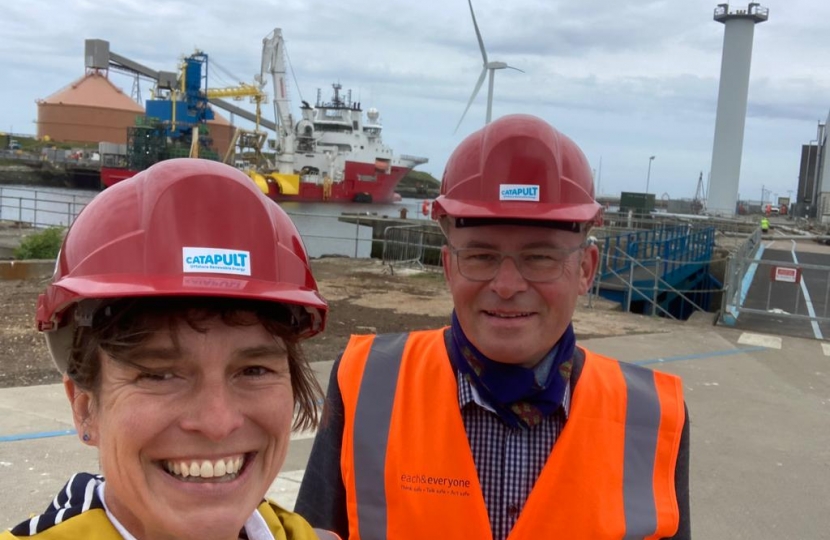
Imagine a future where you can purchase clean electricity directly from a local supplier that is owned and run by local people. Where every pound spent powering your home or car supports local jobs, helps fund new facilities in your community and contributes to more renewable energy infrastructure. This future is within reach and realising it is vital if we are to ensure that the British public welcome and benefit from our transition to Net Zero.
We have made great strides in decarbonising our economy. Our greenhouse gas output is 51% lower today than it was in 1990. Currently, renewable electricity accounts for 14% of our total energy use and that is set to rise significantly as we further decarbonise and build up our energy security. Achieving Net Zero presents the serious challenge of growing our electricity generation by at least two-fold, so that transport and heating can be decarbonised, and building the renewable generation infrastructure to power it. In the face of soaring international gas prices and global energy pressures, we should welcome this challenge.
There is remarkable potential for community energy – renewable schemes owned and run by local people – to help us reach Net Zero on time. Currently community energy generates around 0.5% of our electricity and, as the Environmental Audit Committee showed in its recent community energy inquiry, by 2030 community energy could grow by at least 20 times, powering 2.2 million homes and saving 2.5 million tonnes of CO2 emissions every year.[1]
Most important of all would be people seeing direct local economic benefits. When they hear that the local energy company is hiring new staff and that the local parish hall was repaired via the community energy fund, they will be far more likely to welcome and feel positively engaged with the transition to Net Zero.
Currently, the energy market rules lead to costs that make doing this impossible. The financial, technical, and operational burdens involved in setting up a licenced energy supply company mean that initial costs exceed £1 million.[2]
It would be like setting up a micro-brewery, planning to deliver beers to local pubs, restaurants and homes and then being told that you have to pay £1 million in road tax for your delivery van because it is using the national road network. The business would never be started.
What is needed to realise community energy’s huge potential is to enable its current and future schemes to sell their power directly to local customers. This requires making the costs faced in selling power proportionate to the size of an energy business. New community energy schemes would then be financially viable, and their enormous potential would be realised.
The Local Electricity Bill, which I am proudly co-sponsoring and which currently enjoys the support of 268 MPs, would do this. The Bill would improve the market rules so to allow community energy schemes to flourish alongside larger suppliers. I look forward to working on this Bill so that it can become another proud stride on our decarbonisation journey.
Selaine Saxby MP
[1] https://committees.parliament.uk/call-for-evidence/406/
[2] Institute for Public Policy Research; Community and local energy: Challenges and opportunities, June 2016

